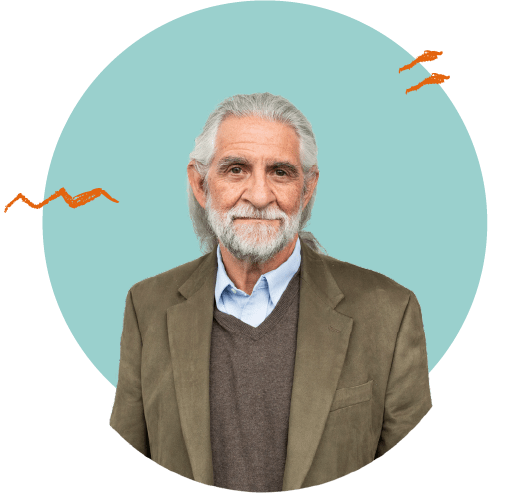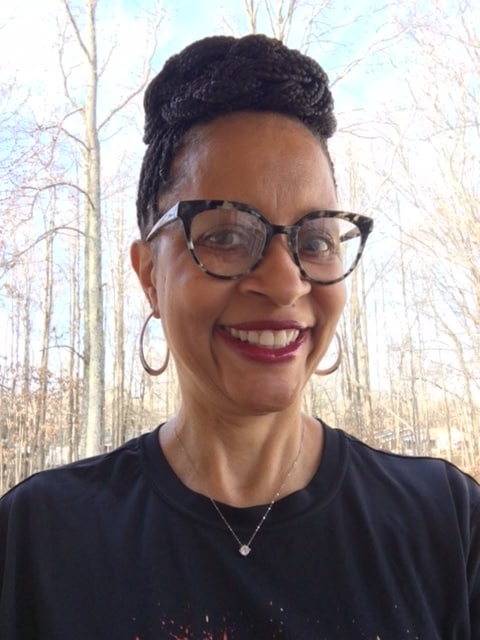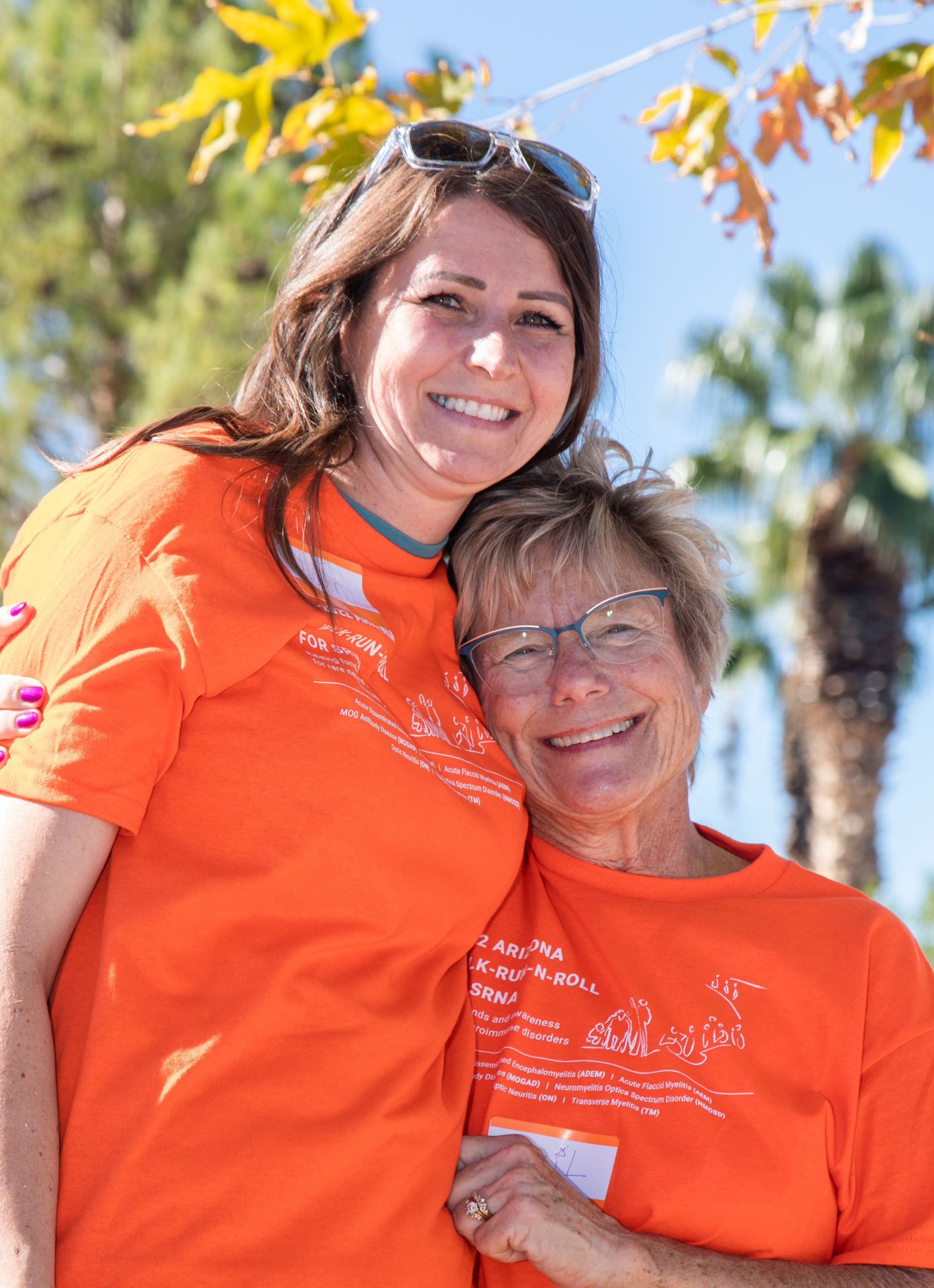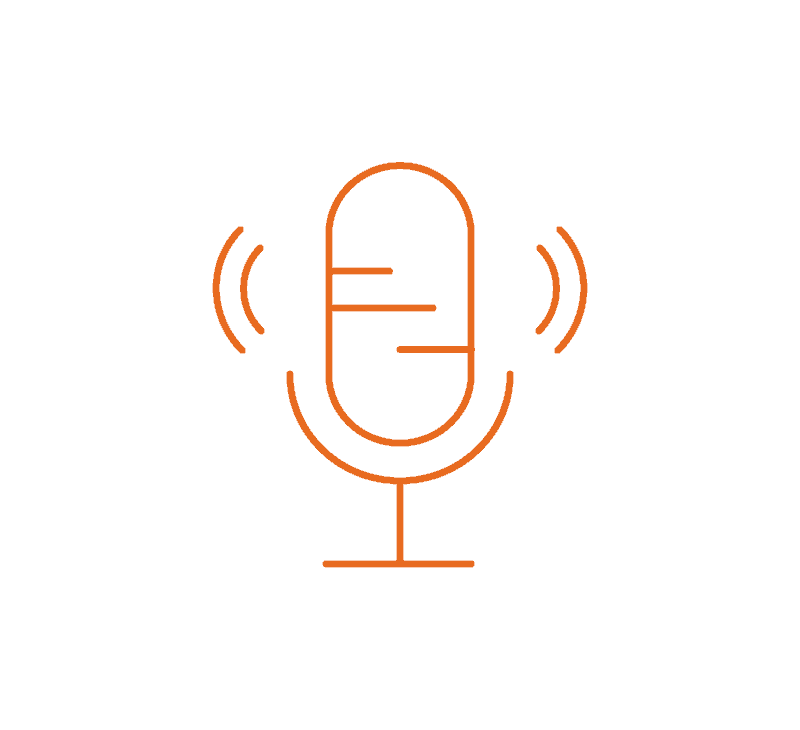 https://wearesrna.org/wp-content/uploads/2015/07/Video-01.png
1250
1250
Angel Simpelo
https://wearesrna.org/wp-content/uploads/2024/01/SRNA_Logo_Menu_30_2.png
Angel Simpelo2022-12-06 16:11:152024-08-26 14:10:562022 RNDS | Q&A and Closing Remarks
https://wearesrna.org/wp-content/uploads/2015/07/Video-01.png
1250
1250
Angel Simpelo
https://wearesrna.org/wp-content/uploads/2024/01/SRNA_Logo_Menu_30_2.png
Angel Simpelo2022-12-06 16:11:152024-08-26 14:10:562022 RNDS | Q&A and Closing RemarksA message from the President, Sandy Siegel
I am happy to share the 2022 Annual Report for the Siegel Rare Neuroimmune Association (SRNA). This past year has been filled with challenges and accomplishments as we endeavor to fulfill our mission of improving the lives of individuals impacted by rare neuroimmune disorders. I encourage you to carefully review this report. Rare disorders place significant financial burdens on families, and we are committed to transparency in showcasing how your generous donations translate into tangible achievements.
Despite the unprecedented circumstances brought about by the global pandemic, SRNA has remained steadfast in our commitment to providing education, support, and advocacy for those diagnosed with rare neuroimmune disorders, their care partners, families, and healthcare professionals. This report provides comprehensive details on all our programs and initiatives.
I would like to draw your attention to three areas highlighted in the report that present opportunities for meaningful contributions and that can shape the future of our organization and community.
Our Mission
The Siegel Rare Neuroimmune Association (SRNA) advocates for, supports and educates individuals and their families diagnosed with acute disseminated encephalomyelitis, acute flaccid myelitis, MOG antibody disease, neuromyelitis optica spectrum disorder, optic neuritis, and transverse myelitis, and accelerates and invests in scientific research, therapy development and training of clinician-scientists dedicated to these disorders. Our end goal is to improve the quality of life of individuals with rare neuroimmune disorders and redouble our commitment to finding a cure. Together.

From
121 countries
Building connections lessens the isolation that often comes with one of these diagnoses. Our Support Group Network and Peer Connect Program unite people from all over the world with similar experiences. Our “This is Me” Campaign and Blog share the stories of the resilient people we work with. Our Walk-Run-N-Roll events allow participants to bring their friends and families together and raise awareness for these disorders. Our annual Quality of Life Family Camp connects children diagnosed with rare neuroimmune disorders, their families, and medical specialists.
In 2022, we were able to match 53 participants with volunteer Peer Connect Leaders (PCLs) as part of our Peer Connect Program. PCLs are trusted individuals who live with a rare neuroimmune disorder and can offer emotional support, share similar experiences, and recommend resources. This volunteer-led initiative connects individuals diagnosed with a rare neuroimmune disorder or their care partner and loved ones to provide a safe space to relate to shared experiences.
When someone receives a diagnosis of a rare neuroimmune disorder, they likely have never heard of this diagnosis before and may never meet someone with the same condition in their life. This is why we have built a virtual community to encourage connections all over the world. In 2022, we continued growing our Support Group Network, and held 48 support group meetings worldwide. More than 785 members attended one of our Support Group Meetings in 2022. These volunteer-led groups connect individuals diagnosed with a rare neuroimmune disorder or their care partner and loved ones to provide a safe space to relate to common experiences.
At a Glance
48
Support Group Meetings held
> 785
people signed up to attend a support group meeting in 2022
In 2022, we expanded our “This is Me” Campaign, in which members of our community share personal videos about their experiences to increase understanding of rare neuroimmune disorders and to provide a forum for sharing personal stories and experiences. We feature these personal videos on social media. Other community stories, along with research summaries, SRNA news, and more are featured on our blog. In 2022, we published 51 blog posts and had over 2,500 subscribers.
Our Walk-Run-N-Rolls have been one of our most powerful awareness initiatives since community leader Colleen Spaeth led the first one in 2012. Since then, those diagnosed with rare neuroimmune disorders, their family and friends, sponsors, and medical professionals have come together to walk, run, or roll to raise awareness and funds to support the important work we do.
In 2022, with the help of some amazing volunteer hosts, we held two successful Walk-Run-N-Roll (WRNR) events in Massachusetts and Arizona. Taking place just outside of Boston, the Massachusetts WRNR was particularly noteworthy for first-time volunteer hosts Jennifer Agersea and Alan Finger. After attending one of these events in 2018, Jennifer was inspired and driven to host her own event to help support others going through a new diagnosis. Over 45 people attended, and raised over $11,000.
It had been three years since hosting the last Arizona WRNR for volunteers Kate Krietor and Julie Barry. Because of this, both were ecstatic to bring this event back to Phoenix in 2022. On Saturday, October 29, over 60 people showed up to Steele Indian School Park to help raise funds and awareness for the rare neuroimmune disorders community.
Learn more about our 2022 Walk-Run-N-Rolls here.
After over two years of connecting through Zoom meetings and phone calls, it was wonderful to bring back the SRNA Quality of Life Family Camp in person again in 2022. We made every effort to ensure the safety and wellbeing of each person at camp in light of the ongoing pandemic, and we appreciate the SRNA community for helping care for one another as we gathered together. In July 2022, 14 families across North America traveled to Kentucky and the Center for Courageous Kids (CCK). At CCK, kids and their families enjoyed splashing in the pool, creating arts and crafts, feeling soft fur in the petting zoo, and so much more. An accessible camp means that disabilities do not limit anyone from participating fully in all activities. A camp with SRNA means feeling welcome, comfortable, and understood.
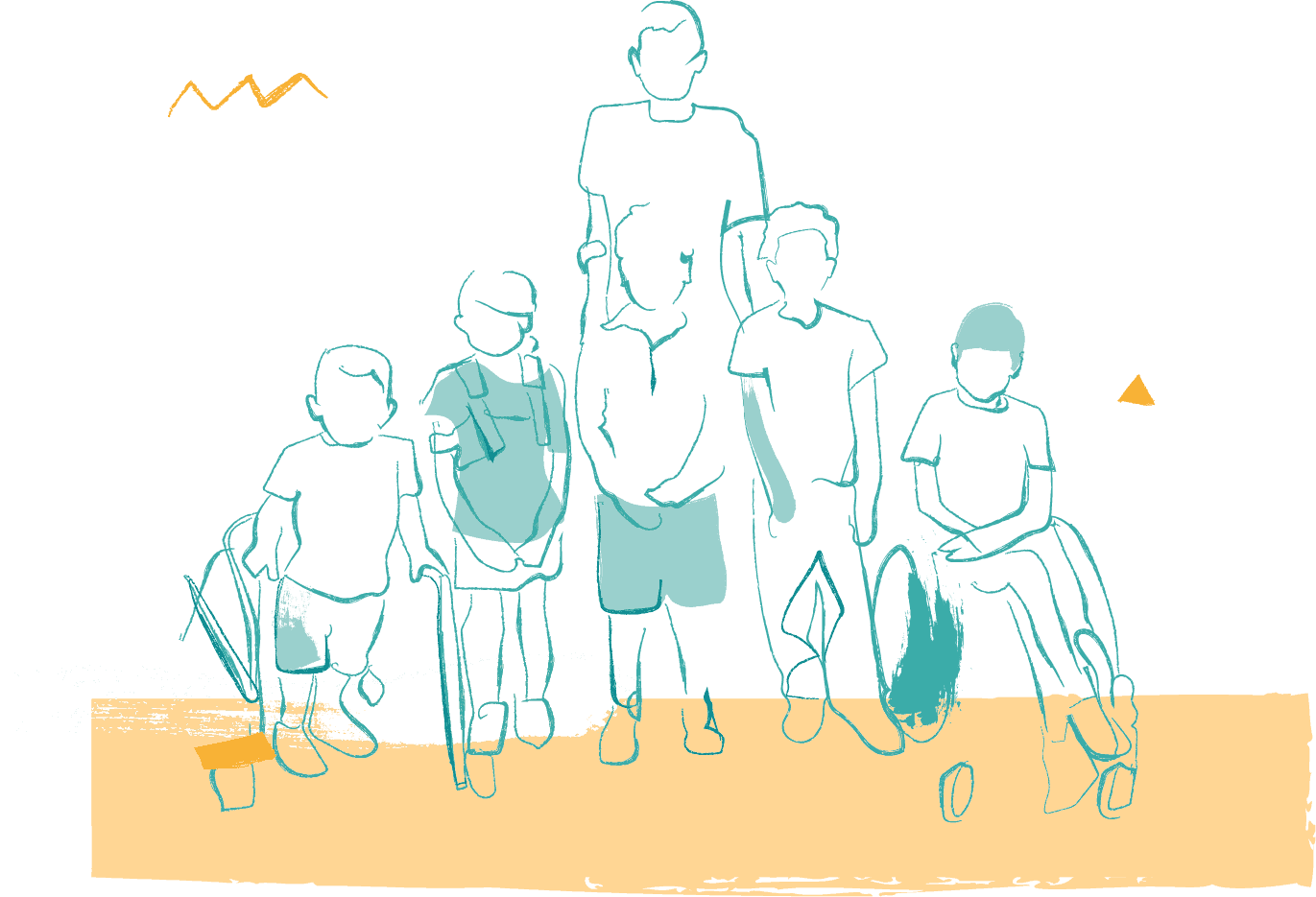
In 2022, 537 new members joined our community. We take our dedication to care for our community seriously by providing up-to-date medical information that empowers those living with rare neuroimmune disorders to make informed decisions about their health. In 2022, we manifested that care by providing up-to-date COVID-19 information from our board member and member of our Medical and Scientific Council, Dr. Greenberg. Our community found this information by listening to our podcasts, attending our virtual symposium, looking through our resource library, finding a doctor specializing in their disorder through our Medical Professional Network, or asking questions through our Myelitis Helpline.
When the COVID-19 pandemic hit, our community was faced with unique questions about how it could impact those with rare neuroimmune disorders. Throughout 2022, we continued to update our members on new research and information regarding COVID-19 diagnoses and vaccinations through a COVID-19 study, new information sheets, podcasts, and videos. We connected with medical experts to get the most up-to-date information on COVID-19 vaccinations and provided timely information to our community. All COVID-related resources can be found here.
Our Medical Professional Network makes it possible to find healthcare providers who have experience with the specific rare neuroimmune disorders we advocate for. Our community can search by location, name, and specialty to find someone who can help with their medical situation. The directory is frequently updated as we work toward making connections with healthcare professionals and educating the medical community about these disorders.
At a Glance
207
medical professionals in the network
SRNA has an extensive collection of information on rare neuroimmune disorders available, which is housed in our Resource Library. Podcast recordings, videos of presentations from past symposia, research summaries, information sheets, and more are available at no cost to anyone with internet access. In 2022, we added 63 new resources to the library.
At a Glance
63
new resources added in 2022
Our two podcast series, Ask the Expert and ABCs of NMOSD, were listened to more than 21,000 times in 2022. These podcasts allowed our community to hear the most up-to-date research and clinical knowledge from medical experts. ABCs of NMOSD was made possible through a patient education grant from Horizon Therapeutics, and was hosted in collaboration with The Sumaira Foundation and the Guthy-Jackson Charitable Foundation. Our Ask the Expert podcast series was sponsored in part by Alexion -AstraZeneca Rare Disease, Horizon Therapeutics, and Genentech.
At a Glance
24
experts
16
podcasts hosted
> 8,242
podcast listens
The 2022 Rare Neuroimmune Disorders Symposium (RNDS) was our first-ever hybrid symposium, where people could attend in person, online, or a combination of both. The 2022 RNDS, hosted by SRNA, Massachusetts General Hospital, UT Southwestern Medical Center, Johns Hopkins Medicine, Harvard Medical School, Children’s Health Dallas, Johns Hopkins Myelitis and Myelopathy Center, MGH NMO Clinic and Research Laboratory, and the CONQUER Program, brought together individuals diagnosed with rare neuroimmune disorders and the clinicians and researchers who study and treat these conditions. Speakers, staff members, and attendees together resulted in 290 people gathering in person and online to discuss, learn, and connect about topics related to rare neuroimmune disorders for a truly international event.
At a Glance
28
presentations were given at the 2022 RNDS
4,576
2022 RNDS video views
290
participants at the 2022 RNDS
The Myelitis Helpline is a free online resource that allows those who have recently been diagnosed, or anyone at any point after the onset of a rare neuroimmune disorder, to get answers and support about living with their disorder and to ask detailed questions. The most frequent requests on our Helpline in 2022 were from people newly diagnosed who sought a better understanding of their diagnosis and treatments. The most frequent Helpline requests were to ask a medical question, find a clinician nearby, ask questions about COVID-19, and look for financial support.
At a Glance
506
individuals supported through the myelitis helpline in 2022
SRNA’s Pauline Siegel Eclipse Fund for Research is dedicated to funding and conducting research to help better understand, treat, and ultimately cure ADEM, AFM, MOGAD, NMOSD, ON, and TM. In order to encourage more clinician-scientists to specialize in rare neuroimmune disorders, we fund their fellowship training through the James T. Lubin Fellowship. In 2022, we were proud to award a research grant funded through the Pauline H. Siegel Eclipse Fund to Monique Anderson, MD, PhD, who is studying the roles of the VPS37A gene and Tsg101 in transverse myelitis.
SRNA awarded a research grant funded through the Pauline H. Siegel Eclipse Fund to Monique Anderson, MD, PhD. Under the mentorship of Dr. Michael Levy at Massachusetts General Hospital (MGH), Dr. Anderson is studying the roles of the VPS37A gene and Tsg101 in transverse myelitis as critical components of exosomes, which are vesicles that facilitate intercellular communication by carrying protein, DNA, and RNA between cells. Through research conducted at MGH, a mutation of the gene VPS37A has been found to be linked to transverse myelitis. Tsg101 is a protein that interacts directly with VPS37A and is now considered a reliable biomarker of endosomes in the onset of transverse myelitis. Endosomes are intracellular vesicles that regulate the trafficking of proteins and lipids among other subcellular compartments of the secretory and endocytic pathway. The research study is investigating whether novel neuronal biomarkers within exosomes are found in the blood of patients with transverse myelitis. These biomarkers could potentially be used as a diagnostic tool to identify those with transverse myelitis. Additionally, the researchers hope to gain insight into the immunopathogenic signaling that triggers a peripheral immune response to a protein in the central nervous system.
SRNA awarded a research grant funded through the Pauline H. Siegel Eclipse Fund to Kyle Blackburn, MD. In this joint SRNA- and UTSW-conducted study, the researchers aim to assess condition-specific knowledge and health literacy in a cohort of patients with rare neuroimmune disorders, by first developing and validating a measure of condition-specific knowledge, then administering the instrument to patients with rare neuroimmune disorders. Health literacy will be assessed with a validated measure of health literacy.
Our patient registry has been designed to learn more about the natural history of rare neuroimmune disorders, treatments and outcomes using standardized tools in order to advance research about rare neuroimmune disorders, collaborate with researchers from around the world, and identify participants for clinical trials. Over 600 community members have shared information about their diagnosis, treatment, and outcomes over the years. This information guides our programs and research.
At a Glance
68
people participated in the SRNA registry in 2022
Join Us
We believe that everyone has a role in improving the quality of life of people with rare neuroimmune disorders. Whether you support us with your time, expertise, or funding, you will be a key player in helping us end rare neuroimmune disorders for good. Join us. We can’t do it without you.
Use Your Voice
You are your own most powerful advocate. Your own voice is the most effective in relaying your story and it must be heard! Share your story with your friends, family, and local community. Encourage and empower others by sharing your story through our “This is Me” Campaign or on our blog. Change begins when we speak up and make our voices heard!
Organize a Walk-Run-N-Roll
Begin locally. Start a Walk-Run-N-Roll in your community to raise awareness and funds for these rare disorders. Join others and share your experiences of living with or caring for someone with a rare neuroimmune diagnosis. These events are vital for emotional and fundraising support. Start planning today!
Start a Support Group
Sharing our experiences and learning together with others who truly understand what it is to live with or care for another with a rare neuroimmune disorder can be life-changing. Start a Support Group in your area to connect with others. Our own voices are powerful but just imagine what can be done when we come together as one!
Volunteer
Looking for a way to get more involved in a cause you care about? Become a volunteer with the Siegel Rare Neuroimmune Association! We are excited for you to show your passion to connect, care, and accelerate research for a cure for rare neuroimmune disorders. Contact us to learn how you can volunteer for SRNA.
Fundraise
Your fundraising fuels the programs that are improving the quality of life of individuals with rare neuroimmune disorders. From bake sales to dinner, auctions, and birthday fundraisers, they’re creative and inventive! You can collectively raise thousands of dollars and be the one responsible for the expansion of our research and education programs. Join us!
Join the SRNA Registry
Share information about your diagnosis in a patient registry that has been designed to learn more about the natural history of rare neuroimmune disorders, treatments and outcomes using standardized tools. By sharing your information, you will help advance research about rare neuroimmune disorders.
Want Support?
We are here for you. If you have questions or want to chat about different ways to get involved, give us a call at +1 (855) 380-3330 or send us an email at [email protected].
Donate
Our work is made possible through the generous support of our community. By choosing to donate to The Siegel Rare Neuroimmune Association, you are actively helping advance research, enhance clinical care, raise awareness, and advocate for those with rare neuroimmune disorders. Join our Anniversary Campaign and help us build upon this momentum.

Thank you
Our Board of Directors
Deborah Capen
Bruce L. Downey
Dave Evans
Benjamin M. Greenberg, MD, MHS
Lana Harder, PhD, ABPP
Peter C. Johnson, MD
Douglas A. Kerr, MD, PhD
Chitra Krishnan, MHS
Michael Levy, MD, PhD
James Lubin
Linda Malecky
Carlos A. Pardo-Villamizar, MD
Jason Robbins
Barbara Sattler
Sanford J. Siegel, PhD
Dennis P. Wolf
Our Medical & Scientific Council
Audrey Ayres, RN, BSN, MSCN, CRND
Gregory N. Barnes, MD, PhD
Brenda L. Banwell, MD
Daniel Becker, MD
Julius Birnbaum, MD
James Bowen, MD
Janet M. Dean, MS, RN, CRRN, CRNP
Allen D. DeSena, MD, MPH
Jerome deSeze, PhD
Denise Fitzgerald, PhD
Donna Graves, MD
Benjamin M. Greenberg, MD, MHS
Lana Harder, PhD, ABPP
Anu Jacob, MBBS, MD, MRCP, DM
Adam I. Kaplin, MD, PhD
Douglas A. Kerr, MD, PhD
Charles E. Levy, MD
Michael Levy, MD, PhD
Joanne D. Lynn, MD
Maureen A. Mealy, RN, BSN, MSCN
Carlos A. Pardo-Villamizar, MD
Frank S. Pidcock, MD
Kathleen Zackowski, PhD, OTR
Social Media at a glance
> 17,155
followers and subscribers
> 1,413
posts and videos shared
> 530,914
reach
Allocated expenses at a glance
In 2022, SRNA expended a total of $1,104,000, of which $976,000 was spent on research, education, and support programs. We are truly grateful for the sacrifices made by our community and appreciate your generosity. We are mindful of every dollar spent and continue to utilize thousands of hours of volunteer time to manage the organization.
Donations
1,236
total number of donors
$ 1,283,002
total donations
2.8%
of SRNA members donated
2022 Education Sponsors
All educational content and programs are solely developed by the SRNA staff, members of the scientific board and approved by Board of Directors.

